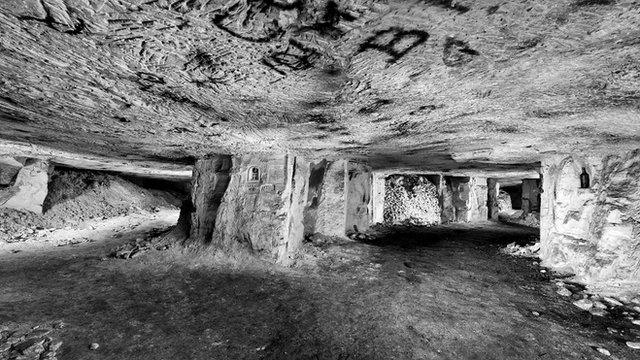Blaenavon miner a 'pioneer' of WW1 underground warfare
- Published
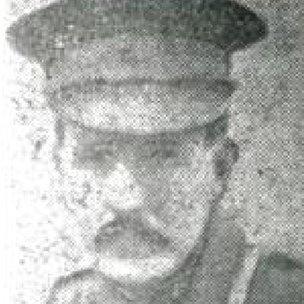
Records show Arthur Edwards' listed address was Park View, Blaenavon
A Welsh soldier was a "pioneer" who helped develop underground warfare in World War One, new research shows.
In 1915, captain Arthur Edwards and his men, known as tunnellers, successfully detonated one of the first underground explosions behind enemy lines.
Mr Edwards, from Blaenavon, Torfaen, was later awarded the Military Cross for his work.
Historian Mark Khan said it was unusual to have such "fascinating" medical records and diaries from an individual.
In 1914, the 26-year-old mining engineer at the Blaenavon Iron and Coal company was a member of the 2nd battalion of the Monmouthshire regiment.
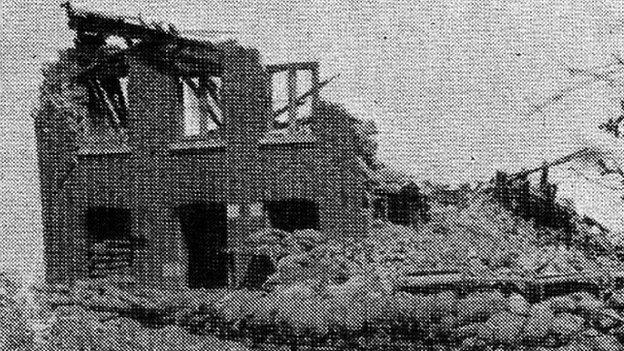
Arthur Edwards was awarded the Military Cross after his team blew up a building used by German snipers
He was put in charge of the 4th divisional mining party - a hastily assembled group of miners turned soldiers.
On 9 April 1915, after months of tunnelling, they blew up a building which German snipers had been using behind enemy lines on the France/Belgium border.
Mr Khan, a military historian with the Durand Group, said Mr Edwards' medical records, diaries and letters "fill a gap" in terms of tunnelling history in World War One.
"This is part of this very early period of mining where there's not a huge of information known... it's a fascinating story and quite unique in many ways.
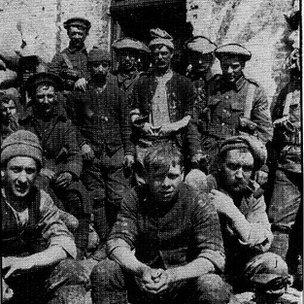
Arthur Edwards' team was comprised of miners
"He is a pioneer, he fights all the way through the war, wounded twice and survives - he's part of somebody who went through the whole war, did an awful lot and survives."
Detailed diagrams drawn by Mr Edwards are among the documents held at the National Archive in Kew.
They show how he engineered several networks of tunnels which became vital supply routes as well as a method of attacking the enemy from below with explosives.
In 1919, after the war, the war office sent Mr Edwards several letters asking him to pay back wages of around £9 but he does not reply and fails to turn up for a military camp in 1920.
It is the last known record of one of the men at the forefront of underground warfare.
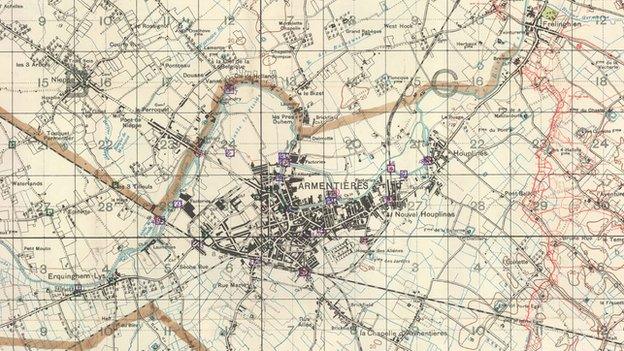
Mr Edwards and his team tunnelled on the border between France and Belgium
- Published10 June 2011
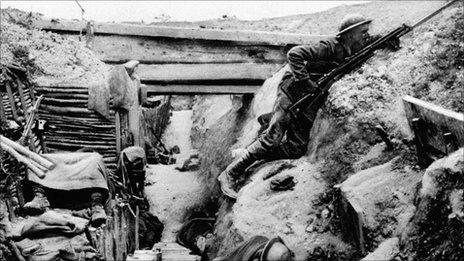
- Published6 October 2014
